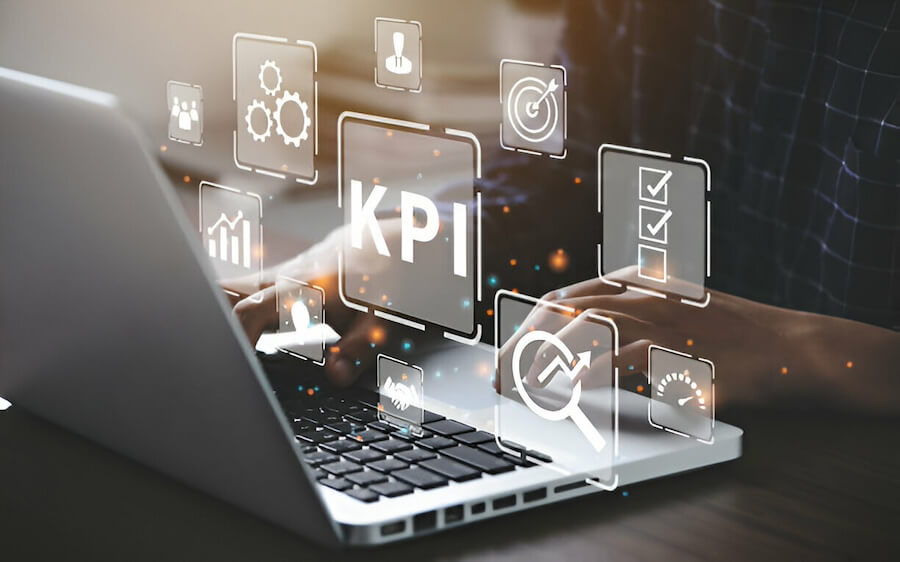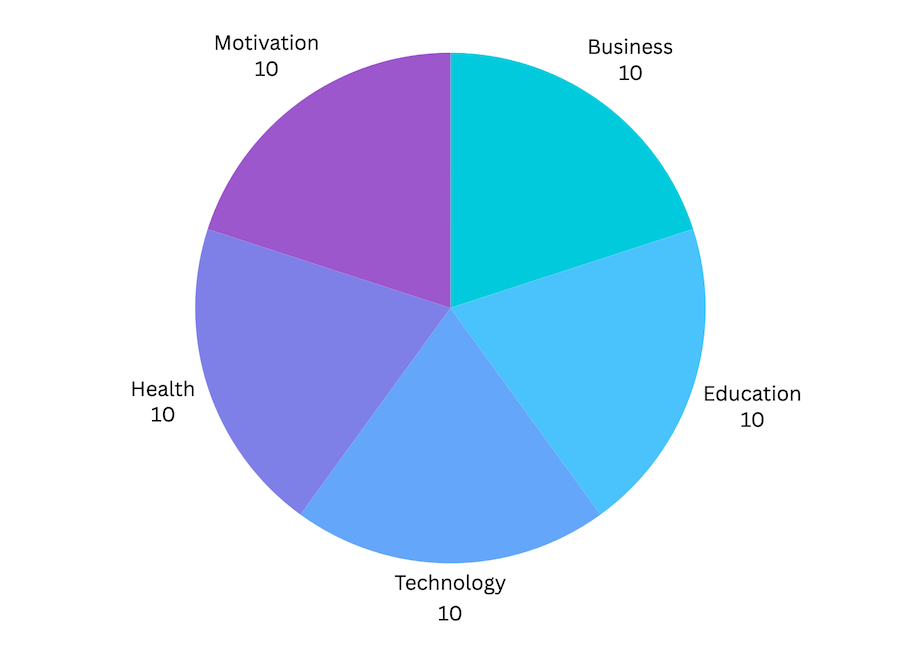Hiring the perfect speaker for your event or meeting can be a daunting task, especially when faced with a plethora of experts, each with their own unique skills and experiences.
As you begin the speaker vetting process, reviewing countless bios and videos can quickly become overwhelming, making it difficult to distinguish one expert from another.
Whether you are working with a speakers bureau or contacting them directly, the sheer volume of information may leave you feeling lost and unsure of how to proceed.
Selecting the right speaker for your event or meeting is going to be a critical decision you make that will play a pivotal role in the success of your event or company meeting. The speaker you choose will not only need to engage and inspire your audience but also align with your event’s objectives and values.
In this article, we are going to outline the most important qualities you should look for when making a decision on the speaker you select. By focusing on these key attributes, you’ll be better equipped to navigate the sea of potential candidates and find a speaker who will make your event truly memorable.
If you are working with a speakers bureau, be sure to leverage the expertise of your agent throughout this process. With their extensive experience working on hundreds or even thousands of events, they can provide invaluable guidance in selecting the ideal speaker for your specific needs.
We have also compiled the most comprehensive list of speaker interview questions that you can use to help you along this selection process. Once you have created a shortlist of speakers, you can then begin interviewing them.
Availability

Is the speaker available on your date?
When embarking on the speaker selection process, one of the critical factors to consider is the speaker’s availability on your event date. While it may seem straightforward, the reality is that a speaker’s schedule is often a dynamic and ever-changing landscape. To ensure you choose the perfect speaker for your event, it’s essential to dive deeper into their availability and potential conflicts.
As you begin evaluating a speaker, the first step is to inquire about their availability on your specific event date. However, don’t stop there. It’s crucial to ask if they have any tentative engagements or pending commitments that could potentially clash with your event. Speakers are often juggling multiple opportunities, and what may appear as an open date could quickly transform into a booked engagement.
To navigate this scheduling maze, consider keeping your event date within a to-be-determined (TBD) window. This flexibility allows you to accommodate the availability of your ideal speaker. By having a range of potential dates, you increase the likelihood of securing the speaker who perfectly aligns with your event’s objectives and theme.
Budget

Does the speaker fit your budget?
When evaluating potential speakers for your event, it’s crucial to consider whether they align with your allocated budget. One of the most significant challenges event planners face during the speaker selection process is striking a balance between their desired speaker and the financial constraints of the event.
It’s natural to feel excited about a particular speaker who seems like the perfect fit for your event. However, it’s essential to remember that, much like shopping for a house, it’s easy to get carried away with what you like versus what you can afford. To avoid any disappointment or financial strain, it’s vital to establish a clear budget and stick to it throughout the speaker vetting process.
When initiating conversations with potential speakers, keep in mind that they typically provide a price range rather than an exact quote. The specific fee of a speaker can vary significantly depending on various factors, such as the event’s duration, location, customization, and the speaker’s level of involvement. These details are usually fleshed out during the negotiation process, where the speaker’s requirements and your event’s specific needs are discussed in depth.
To navigate this financial aspect effectively, it’s wise to create a shortlist of speakers whose price ranges fall within your budget. This approach ensures that you are considering options that are realistically attainable and prevents you from investing time and energy into pursuing speakers who may ultimately be beyond your financial means.
Event Goals

Does the speaker align with your event goals or theme?
When selecting a speaker for your event, it’s imperative to ensure that they align with your event’s goals and theme. This alignment is critical to the success of your event and the achievement of your desired outcomes.
Before diving into the speaker selection process, take the time to establish clear key performance indicators (KPIs) that define the specific results you want to attain from your event or meeting.
Having well-defined KPIs serves as a roadmap for your speaker selection process. It allows you to evaluate potential speakers based on their ability to contribute to the realization of your event’s objectives. When you have a clear understanding of what you want to achieve, you can seek out speakers who possess the expertise, experience, and skills necessary to help you reach those goals.
Here are some examples:
As you begin contacting speakers, keep your KPIs at the forefront of your communication. Share your event’s objectives with the speakers and gauge their ability to align with and support those goals.
A speaker who understands and resonates with your event’s purpose will be better equipped to deliver content and engage with your audience in a way that drives the desired results.
Keynote vs Guest Speaker

Do you need a keynote speaker or a guest speaker?
Keynote speakers are typically the main attraction of an event, setting the tone and theme for the entire gathering. They are often the first speaker to take the stage, and their presentation is expected to be the most impactful and memorable.
Given their crucial role, it’s essential to find a keynote speaker who aligns with your brand, possesses a charismatic presence, and can captivate the audience from the very beginning.
The first five minutes of an event are critical in determining whether the audience will remain engaged and committed to giving you their full attention. A highly charismatic and compelling keynote speaker can make all the difference in capturing the audience’s interest and setting a positive and energetic tone for the rest of the event.
On the other hand, a guest speaker, while still important, may not carry the same level of responsibility in terms of setting the overall tone and impact of the event. While guest speakers should still be engaging and informative, they may not require the same level of charisma and stage presence as a keynote speaker.
Brand Alignment

Does the speaker align with your brand?
When selecting a speaker for your event, it’s crucial to consider whether their brand aligns with your organization’s brand. Keep in mind that by hiring a speaker, you are not only bringing their expertise and insights to your event but also associating their brand with your own. The speaker becomes an extension of your organization, and their words, actions, and reputation can significantly impact how your audience perceives your brand.
It’s essential to choose a speaker who effectively represents your brand and upholds the values and image you want to convey. Take the time to research the speaker’s background, previous speaking engagements, and public persona to ensure they align with your organization’s mission, values, and target audience.
A speaker who shares your brand’s vision and can communicate it effectively will reinforce your messaging and contribute to a positive brand image. On the other hand, a misaligned speaker can potentially damage your brand’s reputation and create confusion or discord among your audience.
Industry Expertise

Does the speaker have experience in your industry?
When evaluating potential speakers for your event, consider whether they have experience working with organizations in your specific industry. While it’s not an absolute necessity, a speaker with industry experience can bring valuable insights and a deeper understanding of the unique challenges, trends, and best practices that shape your field.
Each industry has its own nuances, approaches, philosophies, and ways of doing things. A speaker who has worked within your industry will be able to tailor their message and expertise to these subtle nuances, making their content more relevant and impactful for your audience.
Moreover, a speaker with industry experience can apply their expertise to the specific context of your field, offering practical solutions and strategies that align with the way your industry operates. They can draw upon real-life examples and case studies that resonate with your audience, demonstrating a keen understanding of the challenges and opportunities they face.
This level of relevance and applicability can enhance the overall value and effectiveness of the speaker’s presentation, leaving your audience with actionable insights they can implement in their own work.
Customization

Is the speaker willing to customize their presentation to fit your needs?
When choosing a speaker for your event, it’s important to consider whether they are willing to collaborate with you and customize their presentation to fit your specific needs and objectives.
While many speakers have pre-existing presentations that they have crafted and delivered successfully, it’s crucial to ensure that their content aligns with your event’s goals and resonates with your audience. A speaker who is open to customization demonstrates a commitment to delivering a targeted and impactful message that meets your unique requirements.
However, it’s important to note that not all speakers are equally willing or able to accommodate customization requests. Highly sought-after or famous speakers may have limited availability or a more rigid presentation style due to their busy schedules and established expertise.
In such cases, it may be worthwhile to consider lesser-known speakers who are more flexible and eager to tailor their content to your specific needs. These speakers often bring a fresh perspective and a willingness to go the extra mile to ensure their presentation delivers maximum value to your audience.
While it can be tempting to gravitate towards big-name speakers, prioritizing customization and collaboration can ultimately lead to a more successful and impactful event.
Audience Needs

Does the speaker understand your audience?
When selecting a speaker for your event, whether it’s an industry conference or a company meeting, it’s crucial to consider whether they have a solid understanding of your audience’s needs and expectations. The success of your event hinges on the speaker’s ability to engage, connect with, and deliver value to your attendees. It’s not enough for a speaker to have expertise in their field; they must also be able to relate to and resonate with your specific audience.
To ensure that your chosen speaker is a good fit for your audience, take the time to assess their level of understanding and familiarity with your attendees. Consider the demographics of your audience, such as their age range, professional backgrounds, and industry experience.
A speaker who has worked with similar audiences in the past will be better equipped to tailor their message and delivery style to meet your attendees’ needs and preferences. They will be able to address the specific challenges, trends, and opportunities that your audience faces, making their content more relevant and actionable.
It’s also important to evaluate the speaker’s communication style and personality to ensure they align with your event’s atmosphere and audience expectations. A speaker who can establish a strong rapport with your attendees, using a tone and approach that resonates with them, will be more effective in capturing and maintaining their attention.
Consider whether the speaker’s energy level, humor, and storytelling ability match the preferences of your audience. A speaker who can adapt their delivery to the unique dynamics of your event and audience will create a more engaging and memorable experience for everyone involved.
Recognizable Name
Does your audience know who the speaker is?
It’s important to consider whether your audience is familiar with the speaker and their work. Choosing a speaker who has a level of recognition or reputation within your industry or niche can create a sense of excitement and anticipation among your attendees. When your audience knows and looks forward to hearing from the speaker, it can boost event registrations, engagement, and overall satisfaction.
However, it’s important to note that bringing in big-name speakers can be expensive and may not always be feasible for every organization’s budget. If you find yourself in this situation, don’t be discouraged. You can still find speakers who have a strong presence and following within your specific industry or community. Look for individuals who have made significant contributions, published notable works, or have a track record of delivering impactful presentations.
While they may not be household names, these speakers can still generate enthusiasm and interest among your target audience. By selecting a speaker who resonates with your audience and aligns with your event’s goals, you can create a meaningful and memorable experience for your attendees.
Actionable Insights

Does the speaker provide actionable insights?
Actionable insights are the cornerstone of a truly impactful and successful presentation. When evaluating potential speakers, it’s essential to look for individuals who not only possess expertise in their field but also have the ability to distill complex information into easily digestible and actionable takeaways.
The ideal speaker should be able to engage your audience, inspire them, and provide practical strategies or tools that attendees can immediately implement in their own lives or work.
During the speaker selection process, take the time to review their previous presentations, testimonials, or case studies to gauge the level of actionable content they provide. Look for speakers who have a proven track record of delivering valuable insights and leaving their audiences with a clear roadmap for success.
A speaker who can effectively bridge the gap between theory and practice, offering concrete examples and step-by-step guidance, will empower your attendees to take meaningful action after the event.
Previous Experience
Have you seen them speak before?
During the speaker evaluation process, it’s highly recommended to invest time in watching videos of the potential speaker’s past presentations. This will give you a firsthand experience of their speaking style, content delivery, and audience engagement. By reviewing their previous performances, you can assess whether their approach aligns with your event’s objectives and resonates with your target audience.
If possible, attending industry conferences where the speaker is presenting can provide an even more comprehensive understanding of their capabilities. Seeing them in action allows you to gauge their stage presence, ability to connect with the audience, and effectiveness in delivering their message. This direct observation can be invaluable in making an informed decision when selecting the ideal speaker for your event.
Thought Leadership
Does the speaker have the expertise and authority you need?
 When assessing a speaker’s expertise and authority, it’s crucial to consider the level of thought leadership that aligns with your event’s goals and audience expectations. Not all thought leaders are created equal, and it’s essential to determine what level of credibility and influence is most important for your specific needs. During the speaker selection process, take the time to examine their experience and credentials to gauge their standing as a thought leader in their field.
When assessing a speaker’s expertise and authority, it’s crucial to consider the level of thought leadership that aligns with your event’s goals and audience expectations. Not all thought leaders are created equal, and it’s essential to determine what level of credibility and influence is most important for your specific needs. During the speaker selection process, take the time to examine their experience and credentials to gauge their standing as a thought leader in their field.
Consider various factors that demonstrate a speaker’s expertise and authority:
- Have they been invited to deliver a prestigious TED talk, showcasing their innovative ideas and captivating storytelling abilities?
- Have they authored a book that has gained recognition and acclaim within their industry?
- Are they published in industry journals providing peer credibility?
- Do they speak at industry conferences alongside other well-known figures?
- Do they have a strong social media following that is highly engaged and relevant?
By assessing these various aspects of a speaker’s background, you can make an informed decision on whether they possess the level of expertise and authority that aligns with your event’s objectives and will resonate with your audience.
Speaking Skills

Does the speaker have the strong speaking skills and stage presence?
While it’s essential to choose a speaker who possesses the necessary expertise and authority in their field, it’s equally important to consider their speaking skills and stage presence. Not all experts are naturally gifted speakers, and even those with extensive knowledge may struggle to effectively communicate their ideas when on stage.
Although they may be highly experienced in their craft, they may not have invested sufficient time in honing their public speaking abilities. Depending on the nature of your event and the impact you want to make on your audience, the speaker’s ability to engage and captivate the crowd can be a crucial factor in the success of your event.
When evaluating potential speakers, pay close attention to their ability to inspire and motivate the audience. A speaker with a strong stage presence can create an unforgettable experience, leaving attendees feeling energized and eager to take action. They have the power to rally the audience behind a cause, ignite passion, and encourage meaningful change.
On the other hand, a speaker who lacks charisma and fails to connect with the audience may leave attendees feeling uninspired and disengaged, diminishing the overall impact of your event.
References & Testimonials
Does the speaker have references from previous engagements?
When qualifying an event speaker, it’s crucial to request references or testimonials from their previous speaking engagements. These references serve as valuable insights into the speaker’s ability to deliver impactful presentations and achieve desired outcomes.
As you review these references, pay close attention to the specific results the speaker generated from each engagement. Look for testimonials that highlight measurable successes, such as increased audience engagement, positive feedback from attendees, or tangible actions taken as a result of the speaker’s presentation.
By examining these references, you can gain a clearer understanding of the speaker’s effectiveness and their ability to deliver on your event’s objectives.
Personality Match
Does the speakers personality match yours?
When entering into a partnership with a speaker for your event, it’s essential to consider whether their personality aligns with yours. As the event organizer, you’ll be working closely with the speaker to orchestrate a specific goal or outcome, which requires effective communication and a shared understanding of the event’s objectives.
Throughout the planning process, you’ll need to ensure that both you and the speaker are on the same page, collaborating harmoniously to create a successful event.
During the speaker vetting process, take the time to interact with potential speakers and get a sense of their personality. Look for someone who is easy to communicate with, responsive to your needs, and open to feedback and suggestions.
A speaker whose personality complements yours can make the entire planning process more enjoyable and efficient, as you’ll be able to establish a positive working relationship built on trust and mutual respect.
Location

Is the speaker located in a convenient area?
When considering a speaker for your event, it’s important to take into account their location and the associated travel costs. If you’re working with a tight budget, travel and accommodation expenses can significantly impact your overall costs, often being the second largest expense after the speaker’s fee.
During the speaker selection process, make sure to inquire about the speaker’s travel origin to assess the length of the flight and estimate the transportation and lodging expenses. Keep in mind that longer flights and more expensive destinations can quickly add up, eating into your budget.
By understanding these logistics beforehand, you’ll be better equipped to make an informed decision and select a speaker who aligns with your financial constraints.
Visual Aids

Does the speaker provide strong visual aids?
Visual aids play a crucial role in enhancing the impact of a speaker’s presentation, helping to illustrate key points and engage the audience. Unfortunately, not all speakers excel at creating compelling visual aids that effectively support their message. When evaluating potential speakers for your event, it’s essential to assess the quality and effectiveness of their visual aids.
During the speaker selection process, take the time to review previous slides and visual materials the speaker has used in other speaking engagements. Look for presentations that incorporate clear, visually appealing, and relevant imagery that reinforces the speaker’s message. Well-designed visual aids can help break down complex concepts, make data more accessible, and create a lasting impression on your audience.
Keep in mind that strong visual aids go beyond just aesthetics; they should also be purposeful and aligned with the speaker’s content. A speaker who effectively integrates visual aids into their presentation demonstrates their ability to communicate their ideas in a multi-faceted way, catering to different learning styles and keeping the audience engaged throughout the presentation.
Virtual Presentations

Can the speaker do virtual engagements?
In today’s rapidly evolving event landscape, it’s crucial to consider a speaker’s ability to deliver virtual presentations. Unforeseen circumstances may arise, requiring a swift pivot from a live, in-person event to a virtual format. During the speaker selection process, make sure to inquire about the speaker’s experience and comfort level with virtual engagements.
Look for speakers who have successfully delivered virtual presentations in the past and have the necessary technology and setup to ensure a smooth and professional delivery. A speaker who is well-versed in virtual platforms and can engage an online audience effectively will be a valuable asset to your event, providing flexibility and peace of mind in the face of potential challenges.
Find a speaker
If you need help identifying the perfect speaker for your event, let one of our agents guide you in this process.
They can save you a lot of time and headaches!






























 When assessing a speaker’s expertise and authority, it’s crucial to consider the level of thought leadership that aligns with your event’s goals and audience expectations. Not all thought leaders are created equal, and it’s essential to determine what level of credibility and influence is most important for your specific needs. During the speaker selection process, take the time to examine their experience and credentials to gauge their standing as a thought leader in their field.
When assessing a speaker’s expertise and authority, it’s crucial to consider the level of thought leadership that aligns with your event’s goals and audience expectations. Not all thought leaders are created equal, and it’s essential to determine what level of credibility and influence is most important for your specific needs. During the speaker selection process, take the time to examine their experience and credentials to gauge their standing as a thought leader in their field.




